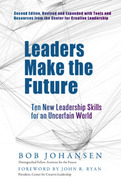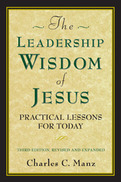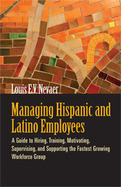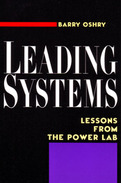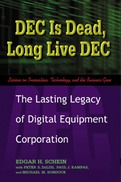2009
Amy Sheldrake, young mother and killer whale trainer-in-training, marvels at the complex behaviors her superiors at SeaWorld are able to coax out of these enormous beasts, while she and her husband struggle to make their beloved—and much smaller—son Josh obey the simplest rules. Using the story approach popularized by Ken Blanchard in his many bestsellers, this unique parenting book draws on the experiences of two of the coauthors—as both pioneering marine mammal trainers and as parents—to show how the same principles that induce killer whales to leap into the air can persuade young children to go quietly to bed.
Like Amy and her husband Matt, once you get the hang of the three Whale Done principles, you'll see a dramatic difference in overcoming challenges like following bedtime routines, dealing with tantrums, introducing new foods, sharing, avoiding overuse of the word no, learning to care for a pet, and instituting time-outs.
Identifies surprising new leadership skills vital to coping with today's uncertain, rapidly changing world.
-
Identifies surprising new leadership skills vital to coping with today's uncertain, rapidly changing world
-
Includes exercises and assessments for developing and applying these skills
-
A fully updated and revised edition of a book adopted by leaders at Procter & Gamble, Target, McDonalds, Electronic Arts, UPS, Kraft, and many other companies
We are in a time of disruptive change-traditional leadership skills won't be enough, noted futurist Bob Johansen argues. Drawing on the latest ten-year forecast from the Institute for the Future-the only futures think tank ever to outlive its forecasts-this powerful book explores the external forces that are shaking the foundations of leadership and unveils ten critical new skills that will be required in the future, skills that you can learn.
In this second edition, Johansen is joined by the prestigious Center for Creative Leadership. CCL's contributions help readers understand the new leadership skills by linking them to existing skills, and they provide analytics and exercises so readers can develop these new skills.
This edition has been updated throughout, with a new ten-year forecast and new examples, and incorporates the lessons Johansen has learned about applying the new leadership skills in the three years since the first edition appeared. In addition, Johansen deals with two new forces that are shaping the future. The first is the "digital natives"-people fifteen years and younger who have grown up in a completely digital world. The second is cloud-based supercomputing, which will enable new forms of connection, collaboration, and commerce and will greatly facilitate reciprocity-based innovation-giving away to get more-which Johansen sees as the biggest innovation opportunity in history.
- Identifies surprising new leadership skills vital to coping with todays uncertain, rapidly changing world
- Includes exercises and assessments for developing and applying these skills
- A fully updated and revised edition of a book adopted by leaders at Procter & Gamble, Target, McDonalds, Electronic Arts, UPS, Kraft, and many other companies
We are in a time of disruptive changetraditional leadership skills wont be enough, noted futurist Bob Johansen argues. Drawing on the latest ten-year forecast from the Institute for the Futurethe only futures think tank ever to outlive its forecaststhis powerful book explores the external forces that are shaking the foundations of leadership and unveils ten critical new skills that will be required in the future, skills that you can learn.
In this second edition, Johansen is joined by the prestigious Center for Creative Leadership. CCLs contributions help readers understand the new leadership skills by linking them to existing skills, and they provide analytics and exercises so readers can develop these new skills.
This edition has been updated throughout, with a new ten-year forecast and new examples, and incorporates the lessons Johansen has learned about applying the new leadership skills in the three years since the first edition appeared. In addition, Johansen deals with two new forces that are shaping the future. The first is the digital nativespeople fifteen years and younger who have grown up in a completely digital world. The second is cloud-based supercomputing, which will enable new forms of connection, collaboration, and commerce and will greatly facilitate reciprocity-based innovationgiving away to get morewhich Johansen sees as the biggest innovation opportunity in history.
New edition offers profound lessons in leadership for readers of any religious background
- New edition of the bestselling classic (over 75,000 copies sold and translated into eight languages)
- Offers profound lessons in leadership for readers of any religious background
- Updated throughout, with a new self-assessment chapter
The name Jesus conjures up all kinds of powerful images and emotions. But regardless of religious belief, most people would agree that Jesus was a powerful ethical and spiritual figure and one of the most influential and inspiring people who ever lived. It is in this spirit that Charles Manz-not a theologian but rather a highly regarded leadership professor and consultant-approaches the teachings of Jesus.
The Leadership Wisdom of Jesus is for anyone who wants to become a wise and highly effective leader. It outlines a uniquely constructive and compassionate approach to leadership based on positive spiritual principles contained in the teachings of Jesus. Manz doesn't look to these teachings to support preconceived theories of how to lead but explores the New Testament with an open mind to see what insights it reveals for today's work world. What he finds are powerful lessons that will inspire you to maintain integrity, live on a higher plane, and ultimately achieve your per- sonal and professional goals, no matter what your religious background.
This new edition is updated throughout and includes several new examples and a self- assessment chapter designed to encourage self-examination and personal reflection. Remarkably contemporary and welcoming to all readers, this book will challenge you to evaluate your own leadership style and to consider time-tested spiritual wisdom that can make you more enlightened and more effective.
- New edition of the bestselling classic (over 75,000 copies sold and translated into eight languages)
- Offers profound lessons in leadership for readers of any religious background
- Updated throughout, with a new self-assessment chapter
The name Jesus conjures up all kinds of powerful images and emotions. But regardless of religious belief, most people would agree that Jesus was a powerful ethical and spiritual figure and one of the most influential and inspiring people who ever lived. It is in this spirit that Charles Manznot a theologian but rather a highly regarded leadership professor and consultantapproaches the teachings of Jesus.
The Leadership Wisdom of Jesus is for anyone who wants to become a wise and highly effective leader. It outlines a uniquely constructive and compassionate approach to leadership based on positive spiritual principles contained in the teachings of Jesus. Manz doesnt look to these teachings to support preconceived theories of how to lead but explores the New Testament with an open mind to see what insights it reveals for todays work world. What he finds are powerful lessons that will inspire you to maintain integrity, live on a higher plane, and ultimately achieve your per- sonal and professional goals, no matter what your religious background.
This new edition is updated throughout and includes several new examples and a self- assessment chapter designed to encourage self-examination and personal reflection. Remarkably contemporary and welcoming to all readers, this book will challenge you to evaluate your own leadership style and to consider time-tested spiritual wisdom that can make you more enlightened and more effective.
-
The first book on supporting and developing Hispanic employees in any organization
-
Identifies three overarching concepts that shape Hispanic culture and explores how they influence workplace behavior and expectations
-
Written by a distinguished Hispanic author and authority on Hispanic economic behavior
Hispanics are the largest minority group and the fastest growing demographic in the United States—they are already 15% of the population and 22% of the workforce, and it’s estimated that by 2050 those numbers will go up to 36% and 55% In this much-needed new book Louis Naevar helps non-Hispanic employers and colleagues understand how Hispanics see the business world—and the world in general—so they can better support and develop this dynamic group of workers.
Drawing on his own ethnic background and years of experience as director of the organization Hispanic Economics, Nevaer identifies three concepts that shape Hispanic culture and often result in behaviors and beliefs very different than, and sometimes seemingly at odds with, those of non-Hispanics. He explores subtle nuances within the Hispanic community—which is no more monolithic than the “European” community—that will help employers appreciate differences and tensions between Hispanic workers. With this as an overarching framework, and using a wealth of specific examples, Nevaer shows how to develop Hispanic-friendly approaches in every aspect of the modern workplace, from recruitment, retention and evaluation to training, mentoring, and labor relations.
As Hispanics become an ever-larger segment of the workforce, organizations who fail to make them feel welcome and valued risk losing access to a significant source of talent and innovation, not to mention a connection to a major evolving market. Managing Hispanic and Latino Employees is an invaluable resource for creating an environment where Hispanic workers feel comfortable, recognized and rewarded.
2004
For over thirty years, Barry Oshry has uncovered core truths about how we operate in large organizations through the Power Lab, an experiential program that has been called "The World Series of Leadership Development Activities." In Leading Systems, Oshry reveals the lessons he has derived from his Power Lab experiences-experiences that have been central to his innovative insights about human systems and system leadership.
Oshry maintains that the next evolutionary challenge for human beings is to recognize ourselves as system creatures, see how system processes shape our experiences, and develop the knowledge and skills to master these processes rather than be victims of them. Drawing on his Power Lab experiences, he reveals the possibilities of systems leadership and how effective leadership can provide the basis for creating sane, healthy, effective social systems.
Challenging conventional thinking, Oshry shows the limitations of consensus, the importance of unilateral action, and the restrictions that our values-such as egalitarianism, liberalism, conservatism-can place on power. He reveals how the problems we often believe are personal or peculiar to our system or circumstances are in fact systemic, limiting the possibilities of both individuals and the system as a whole-and he demonstrates what it takes to break out and elevate ourselves and our systems to higher levels of possibility.
Perhaps most importantly, Oshry shares his experience in discovering what he calls "exhilarating concepts," and shows how these concepts offer unusual insights into the nature of systems, shedding light on everything from organizational dysfunction to the conflicts that occur along lines of race, gender, sexual orientation, and ethnicity. It is only through this deep knowledge, Oshry says, that system leaders can elevate their systems to those higher levels of possibility to which we aspire.
Offering new directions, Leading Systems is essential reading for anyone who wants a deep understanding of how systems work and how to exert enlightened leadership.
- Accessible, full of real-life examples, and beautifully written by a pioneer in systems thinking
- A systems framework based not on hopes and dreams but on thirty years of research on what systems really are
- Speaks to leadership in the family, community, organization, and nation
Edgar Schein consulted to DEC throughout its history and so had unparalleled access to all the major players, and an inside view of all the major events. He shows how the unique organizational culture established by DEC's founder, Ken Olsen, gave the company important competitive advantages in its early years, but later became a hindrance and ultimately led to the company's downfall. Schein, Kampas, DeLisi, and Sonduck explain in detail how a particular culture can become so embedded that an organization is unable to adapt to changing circumstances even though it sees the need very clearly.
The essential elements of DEC's culture are still visible in many other organizations today, and most former employees are so positive about their days at DEC that they attempt to reproduce its culture in their current work situations. In the era of post-dot.com meltdown, raging debate about companies "built to last" vs. "built to sell," and more entrepreneurial startups than ever, the rise and fall of DEC is the ultimate case study.
• Edgar Schein is one of the founders of the organization development field, a widely respected scholar and a bestselling author
• Shows how the unique culture of DEC was responsible both for its early rise and for its ultimate downfall-a real-life classical tragedy
• Schein was a high-level consultant to DEC throughout its history, with unparalleled access to the company's story as it unfolded over the course of four decades
DEC Is Dead, Long Live DEC tells the 40-year story of the creation, demise, and enduring legacy of one of the pioneering companies of the computer age. Digital Equipment Corporation created the minicomputer, networking, the concept of distributed computing, speech recognition, and other major innovations. It was the number two computer maker behind IBM. Yet it ultimately failed as a business and was sold to Compaq Corporation. What happened?
Edgar Schein consulted to DEC throughout its history and so had unparalleled access to all the major players, and an inside view of all the major events. He shows how the unique organizational culture established by DEC's founder, Ken Olsen, gave the company important competitive advantages in its early years, but later became a hindrance and ultimately led to the company's downfall. Schein, Kampas, DeLisi, and Sonduck explain in detail how a particular culture can become so embedded that an organization is unable to adapt to changing circumstances even though it sees the need very clearly.
The essential elements of DEC's culture are still visible in many other organizations today, and most former employees are so positive about their days at DEC that they attempt to reproduce its culture in their current work situations. In the era of post-dot.com meltdown, raging debate about companies "built to last" vs. "built to sell," and more entrepreneurial startups than ever, the rise and fall of DEC is the ultimate case study.



